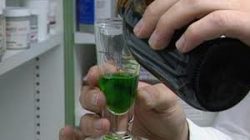Can Methadone be Used to Treat Addiction to Morphine?
The opium poppy plant has given rise to an array of opiate-based drugs and prescription medications, such as morphine, heroin and Oxycontin. While different types of opiates can vary in overall strength, all opiate drugs carry a potential for addiction. Addiction to morphine is one of these.
Methadone, commonly used to treat heroin addiction, can also be used to treat morphine addictions. As one of the strongest opiates on the market, morphine is a “direct descendant” of opium, while heroin is actually derived from morphine.
As a treatment approach, methadone has a solid history as an opiate addiction treatment in general, offering a range of benefits for recovering addicts.
Morphine Addictions
According to Dickinson College, morphine was the very first opiate drug to be extracted from the opium poppy plant. Morphine’s discovery paved the way for the wide variety of prescription pain relief medications on the market today. While morphine works as an effective pain medication, its mechanism of action also makes for a highly addictive substance.
Whether taken orally or through injection, once inside the brain, morphine causes certain brain cells to secrete unusually high levels of dopamine neurotransmitter chemicals, according to the National Institute of Justice. When done repeatedly, the brain becomes less sensitive to morphine’s effects while at the same time losing its ability to secrete dopamine on its own. Over time, larger doses of morphine are needed to produce the same drug effects.

In the right dosage amount, which is determined at a methadone clinic, methadone can help treat morphine addiction.
Dopamine’s role as a central neurotransmitter places the brain and body in an imbalanced state once the brain becomes dependent on the drug. Without needed treatment, brain functions grow weaker and continue to require increasingly larger doses of morphine to function.
Methadone Maintenance Treatment
Methadone maintenance treatment uses methadone to replace the effects of morphine in the brain. Methadone is a synthetic opiate medication, which affects the brain in much the same way as morphine does. As methadone is opiate-based, doses of methadone can reduce morphine drug cravings and withdrawal effects.
According to the National Institute of Justice, methadone also has a slow-release effect and low addiction potential. When taken as prescribed, a person can participate in normal everyday activities without feeling sedated. In effect, methadone helps restore the brain’s chemical balance as a person is weaned off morphine’s effects.
Methadone Doses
Methadone can ward off morphine withdrawal effects and cravings for a period of 24 to 36 hours. Unlike morphine, methadone’s slow-acting effect doesn’t produce feelings of euphoria. Methadone’s slow-acting effects also enable the drug to stay in the body longer.
People on methadone receive daily doses of the drug for as long as they remain in treatment. As methadone holds a Schedule I narcotic classification, federal regulations dictate who can prescribe and dispense it.
Dosage Considerations
Methadone dosage amounts must be carefully calibrated in order to reap the therapeutic benefits of the drug. Too large a dose will produce unwanted sedation and/or “high” effects. Too low a dose will leave a person susceptible to drug cravings and withdrawal effects.
In general, a person’s age, opiate tolerance level, drug history and medical status determine what dosage amounts to use. For detox purposes, initial doses range anywhere from 20 to 30 milligrams. For long-term, maintenance purposes, dosage amounts fall somewhere within the 80 to 120 milligram range.
As morphine exists as “the” original opiate drug, methadone can offer an effective treatment solution for morphine addiction.